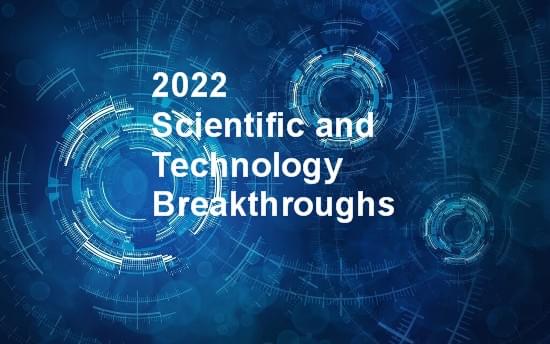Electronic measurements can determine entropy in quantum dots and single molecules — a measurement that has been historically difficult to perform.
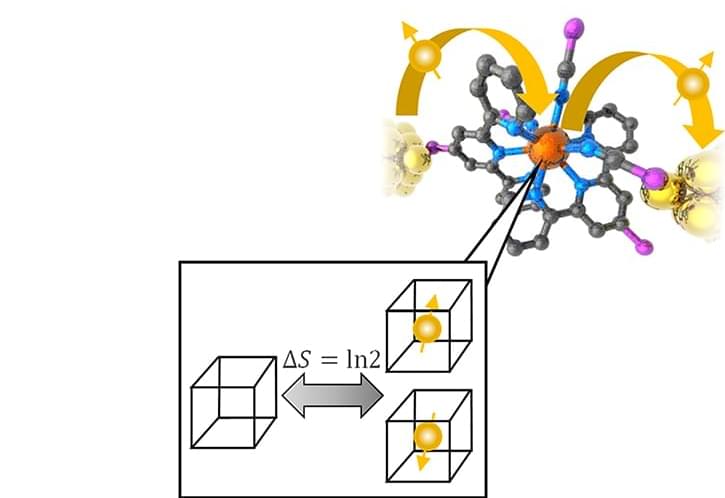

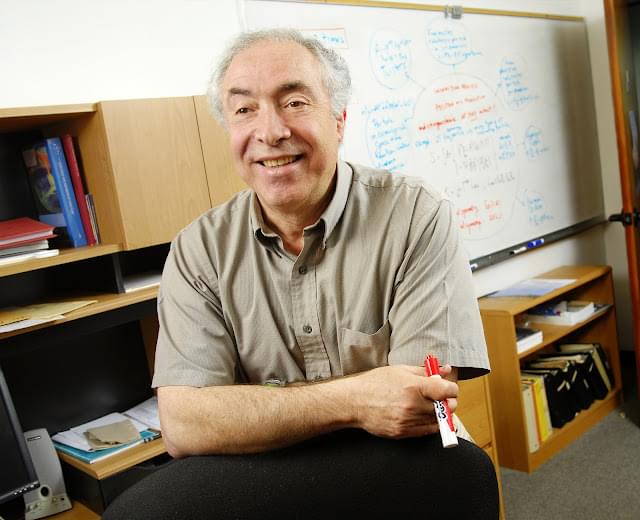
As science fiction would have you believe, you can’t really go to “another dimension.” Dimensions are more about how we see the world. But some things point to not just one, but two dimensions of time, according to one expert. If it were true, the theory could fix the biggest problem in physics, which is that quantum mechanics and general relativity don’t agree with each other.
Itzhak Bars from the University of Southern California in Los Angeles says that’s the case. Up, down, left, right, forward, back, and space-time are the normal three dimensions. In Bars’s theory, time is not a straight line. Instead, it is a curved 2D plane that is woven into all of these dimensions and more.
Dr. Bars has been working on “two-time physics” for more than ten years. All of this started when he started to wonder what time has to do with gravity and other forces. Even though the idea of more dimensions sounds strange, more and more physicists are thinking about it because it could help create the “theory of everything” or “unified theory of physics” that everyone wants. This would put all of the basic forces of the universe into a single, simple math equation.

The race is on to develop a quantum computer that can outpace a conventional supercomputer, and researchers from around the world are full-steam ahead. If scaled to adequate sizes, quantum computers represent the largest leap forward in computing for decades, carrying the potential to leave our current machines in the dust, but significant hurdles still remain.
Now, a team of researchers from China have created a superconducting quantum processor with 66 functional qubits which, when faced with a complex sampling task, was able to blast past even the most powerful supercomputers and complete it in just a fraction of the time. What makes the research so impressive is how it demonstrates a huge leap towards quantum primacy, a milestone in which quantum computers complete a task that is infeasible for a conventional computer to complete.

Check out all the on-demand sessions from the Intelligent Security Summit here.
Over the last half-decade, quantum computing has attracted tremendous media attention. Why?
After all, we have computers already, which have been around since the 1940s. Is the interest because of the use cases? Better AI? Faster and more accurate pricing for financial services firms and hedge funds? Better medicines once quantum computers get a thousand times bigger?
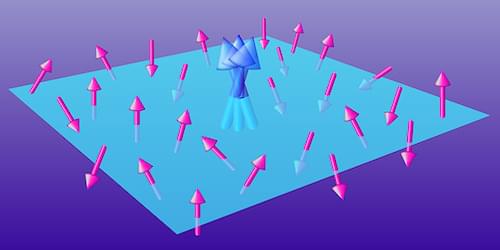
Studies of how a nitrogen-vacancy center’s spin interacts with a surrounding 2D layer of spins could lead to new platforms for quantum metrology and simulation.
Diamond defects, nitrogen-vacancy (NV) centers in particular, serve as a rich playground for studies of spin physics. Over the past two decades, techniques for manipulating and reading out the quantum states of NVs with optical and microwave radiation have been fine-tuned for applications of these defects as magnetometers and qubits. An important research direction involves understanding and controlling how interactions with the environment can affect the NV’s quantum properties. Now two independent teams, led by Nathalie de Leon at Princeton University [1] and by Norman Yao at the University of California, Berkeley [2], respectively, have addressed this question for a configuration relevant to multiple applications: an NV center interacting with a 2D ensemble of spins formed by unpaired surface electrons or by impurities engineered within the diamond.

Quantum Hylomorphism
What is most original in Koons’s book is his argument that quantum mechanics is best interpreted as vindicating the Aristotelian hylomorphist’s view of nature. To be sure, there have been others who have made such claims, not the least of them being Werner Heisenberg, one of the fathers of modern quantum physics. But Koons is the first prominent philosopher to make the case at book-length, in a way that combines expertise in the relevant philosophical ideas and literature with serious and detailed engagement with the scientific concepts. Future work on hylomorphism and the philosophy of quantum mechanics will have to take account of his arguments.
As Koons notes, there are several aspects of quantum mechanics that lend themselves to an Aristotelian interpretation. For example, there is Heisenberg’s famous principle that the position and momentum of a particle are indeterminate apart from interaction with a system at the middle-range level of everyday objects (such as an observer). There is physicist Richard Feynman’s “sum over histories” method, in which predictions must take account of every possible path a particle might take, not just its actual path. There are “entanglement” phenomena, in which the properties of a system of particles are irreducible to the particles considered individually or their spatial relations and relative velocity. There is quantum statistics, in which particles of the same kind are treated as fused and losing their individuality within a larger system.

Year 2020 o.o!
Explorations into the nature of reality have been undertaken across the ages, and in the contemporary world, disparate tools, from gedanken experiments [1–4], experimental consistency checks [5,6] to machine learning and artificial intelligence are being used to illuminate the fundamental layers of reality [7]. A theory of everything, a grand unified theory of physics and nature, has been elusive for the world of Physics. While unifying various forces and interactions in nature, starting from the unification of electricity and magnetism in James Clerk Maxwell’s seminal work A Treatise on Electricity and Magnetism [8] to the electroweak unification by Weinberg-Salam-Glashow [9–11] and research in the direction of establishing the Standard Model including the QCD sector by Murray Gell-Mann and Richard Feynman [12,13], has seen developments in a slow but surefooted manner, we now have a few candidate theories of everything, primary among which is String Theory [14]. Unfortunately, we are still some way off from establishing various areas of the theory in an empirical manner. Chief among this is the concept of supersymmetry [15], which is an important part of String Theory. There were no evidences found for supersymmetry in the first run of the Large Hadron Collider [16]. When the Large Hadron Collider discovered the Higgs Boson in 2011-12 [17–19], there were results that were problematic for the Minimum Supersymmetric Model (MSSM), since the value of the mass of the Higgs Boson at 125 GeV is relatively large for the model and could only be attained with large radiative loop corrections from top squarks that many theoreticians considered to be ‘unnatural’ [20]. In the absence of experiments that can test certain frontiers of Physics, particularly due to energy constraints particularly at the smallest of scales, the importance of simulations and computational research cannot be underplayed. Gone are the days when Isaac Newton purportedly could sit below an apple tree and infer the concept of classical gravity from an apple that had fallen on his head. In today’s age, we have increasing levels of computational inputs and power that factor in when considering avenues of new research in Physics. For instance, M-Theory, introduced by Edward Witten in 1995 [21], is a promising approach to a unified model of Physics that includes quantum gravity. It extends the formalism of String Theory. There have been computational tools relating to machine learning that have lately been used for solving M-Theory geometries [22]. TensorFlow, a computing platform normally used for machine learning, helped in finding 194 equilibrium solutions for one particular type of M-Theory spacetime geometries [23–25].
Artificial intelligence has been one of the primary areas of interest in computational pursuits around Physics research. In 2020, Matsubara Takashi (Osaka University) and Yaguchi Takaharu (Kobe University), along with their research group, were successful in developing technology that could simulate phenomena for which we do not have the detailed formula or mechanism, using artificial intelligence [26]. The underlying step here is the creation of a model from observational data, constrained by the model being consistent and faithful to the laws of Physics. In this pursuit, the researchers utilized digital calculus as well as geometrical approach, such as those of Riemannian geometry and symplectic geometry.
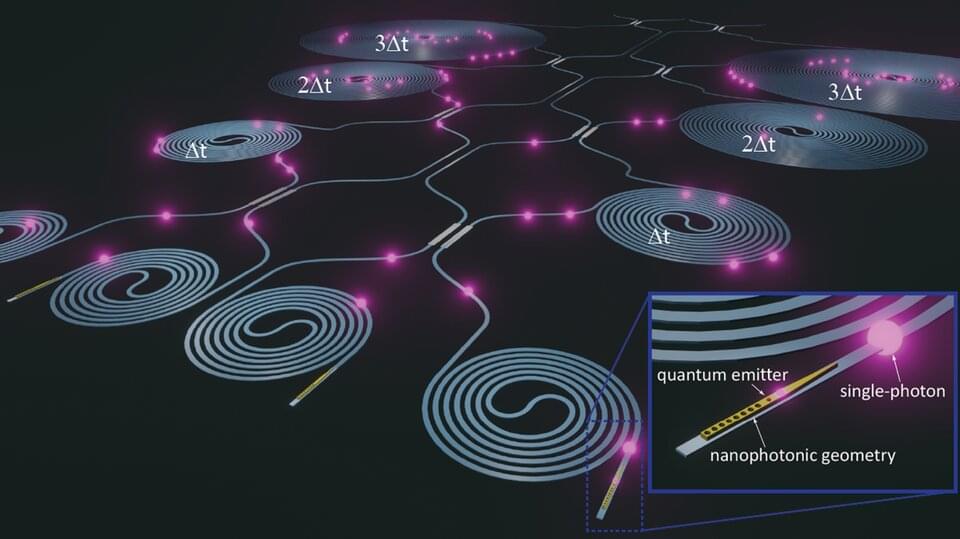
The ability to transmit and manipulate, with minimal loss, the smallest unit of light—the photon—plays a pivotal role in optical communications as well as designs for quantum computers that would use light rather than electric charges to store and carry information.
Now, researchers at the National Institute of Standards and Technology (NIST) and their colleagues have connected, on a single microchip, quantum dots—artificial atoms that generate individual photons rapidly and on-demand when illuminated by a laser—with miniature circuits that can guide the light without significant loss of intensity.
To create the ultra-low-loss circuits, the researchers fabricated silicon-nitride waveguides—the channels through which the photons traveled—and buried them in silicon dioxide. The channels were wide but shallow, a geometry that reduced the likelihood that photons would scatter out of the waveguides. Encapsulating the waveguides in silicon dioxide also helped to reduce scattering.

Scientists are increasingly studying quantum entanglement, which occurs when two or more systems are created or interact in such a manner that the quantum states of some cannot be described independently of the quantum states of the others. The systems are correlated, even when they are separated by a large distance. The significant potential for applications in encryption, communications and quantum computing spurs research. The difficulty is that when the systems interact with their surroundings, they almost immediately become disentangled.
In the latest study by the Laboratory for Coherent Manipulation of Atoms and Light (LMCAL) at the University of São Paulo’s Physics Institute (IF-USP) in Brazil, the researchers succeeded in developing a light source that produced two entangled light beams. Their work is published in Physical Review Letters.
“This light source was an optical parametric oscillator, or OPO, which is typically made up of a non-linear optical response crystal between two mirrors forming an optical cavity. When a bright green beam shines on the apparatus, the crystal-mirror dynamics produces two light beams with quantum correlations,” said physicist Hans Marin Florez, last author of the article.
